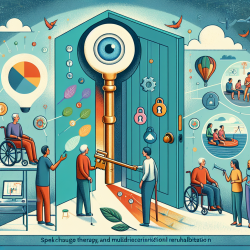Understanding Dyslexia: A Paradigm Shift
The prevailing view of dyslexia as a neurodevelopmental disorder is being challenged by recent research findings. The study titled Is Dyslexia a Brain Disorder? by Protopapas and Parrila (2018) suggests that dyslexia should not be considered a disorder of the brain. Instead, it is an expression of individual differences in reading skills, which are part of a normal developmental spectrum.
What the Research Says
The study argues that the term "dysfunctional" or "abnormal" is not justified when referring to the brains of individuals with dyslexia. The evidence from neuroimaging studies is largely correlational and does not support the notion of dyslexia as a disorder. Differences in brain structure or function simply reflect the neural substrate of behavioral differences, not abnormalities.
Implications for Practitioners
For practitioners, this research emphasizes the importance of focusing on individual differences rather than viewing dyslexia as a deficit. Here are some actionable insights:
- Shift from a deficit-based model to a difference-based model when assessing and supporting children with dyslexia.
- Focus on personalized interventions that leverage the child's strengths and address specific challenges.
- Encourage a broader understanding of literacy development that includes diverse learning trajectories.
Encouraging Further Research
Practitioners are encouraged to engage with ongoing research to better understand the complexities of dyslexia. This includes exploring the multifactorial nature of reading difficulties and the role of environmental and educational factors in literacy development.
Conclusion
By redefining dyslexia as part of a continuum of reading abilities, we can foster a more inclusive and supportive educational environment. This approach not only benefits children with dyslexia but also enriches our understanding of human development.
To read the original research paper, please follow this link: Is Dyslexia a Brain Disorder?










